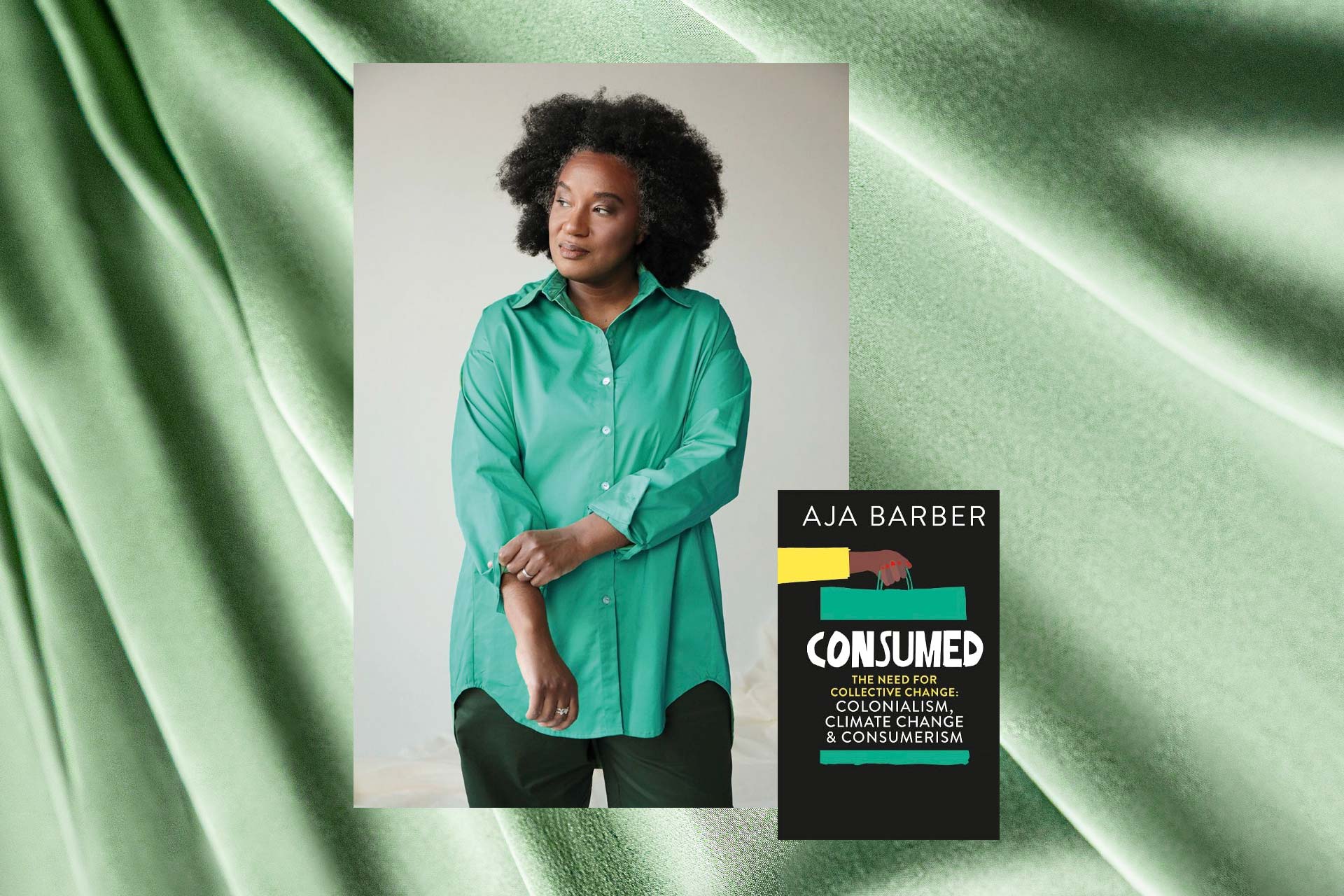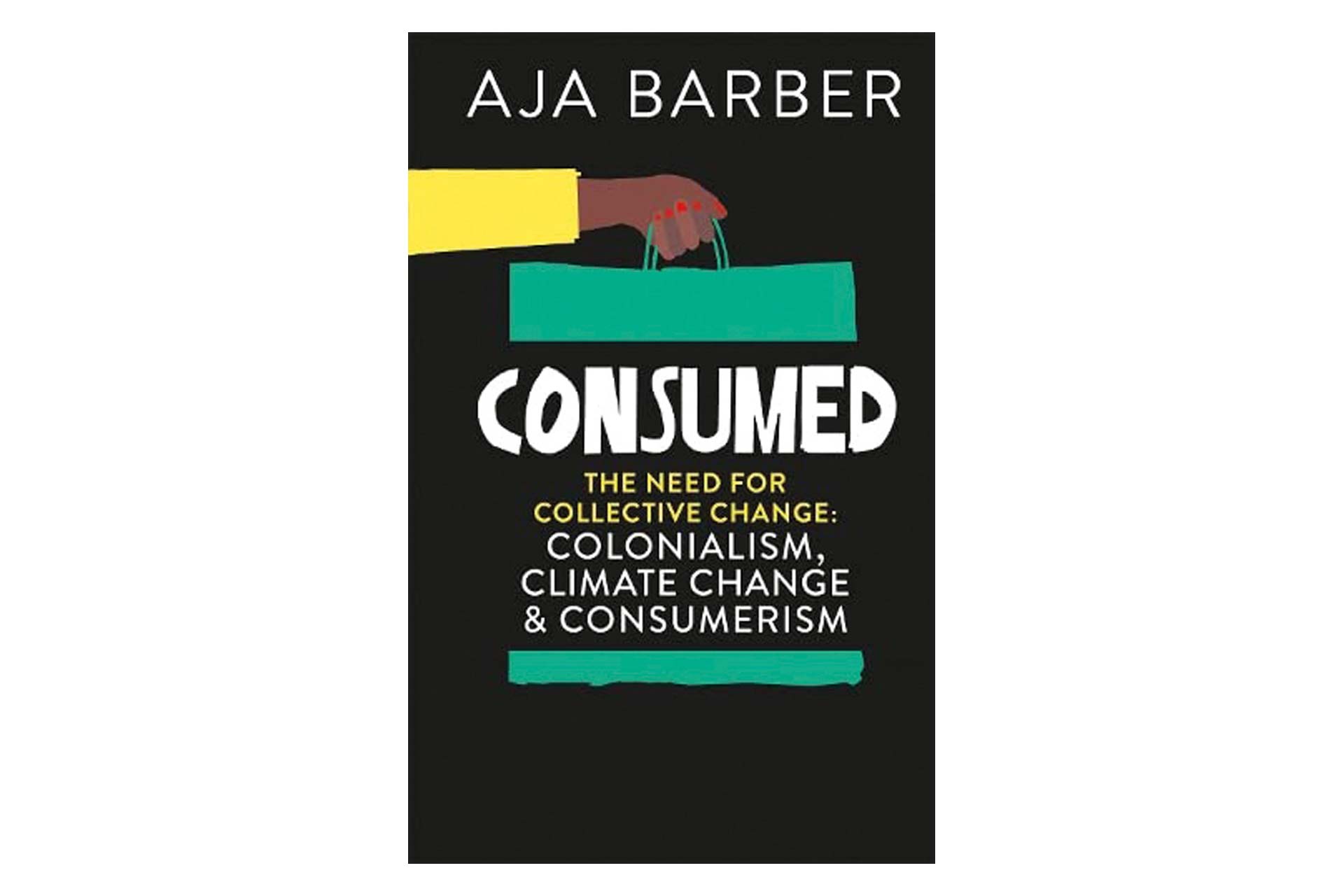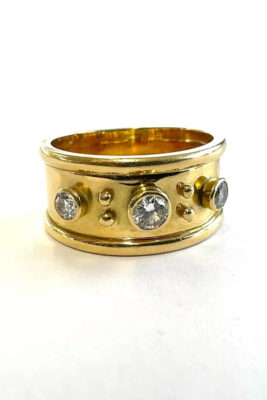Fashion Activist Aja Barber – ‘We Keep Buying Thinking That We Will Magically Get Happy’
By
3 years ago
The rebel with a cause is taking down fast fashion

Opting out of the relentless consumerist cycle might actually bring us the joy we’re all yearning for, believes Aja Barber.
Interview With Fashion Activist, Aja Barber
Aja Barber arrives at The Culpeper, a hip regenerative gastropub in East London, dressed head-to-toe in white. It’s all secondhand or small batch, and she’s striking – an eBay-clad avenging angel. The Alabama native didn’t plan on becoming the face of the secondhand, ethical fashion movement; she simply grew up in the Sophia Amoruso (Nasty Gal founder) era of digital marketplaces, scoring quality threads cheaper through careful bidding to curate the ultimate noughties wardrobe.
‘It wasn’t cool in the year 2000. I was a university student, and during that time, denim was it. Every six months, there’d be a new denim brand that you needed to have. And I just did not have money. I was browsing eBay for other things [than clothes] when it fell into place.’
We pause – she orders a coffee. She is, she tells me, still on the dairy stuff. ‘Easy on the meat, I don’t actually eat beef at all. I think I feel lactose intolerance coming for me. These are the last glory days before I go vegan, basically.’
She muses: ‘Some of these decisions are so good for the planet. And then not too bad for us, either.’
It’s the same with fast fashion, she tells me. Before Aja switched her shopping habits, it was a cycle of emotional distress, purchase and yearning. ‘I was always feeling like I had to buy a new thing each week, each month. I distinctly remember pulling out all my summer dresses from the previous year, and… I’d liked those dresses, but I suddenly felt quite bad. And overwhelmed. Because there was this inherent pressure that I would have to just consume more, and I couldn’t simply be happy with the stuff I already owned.’
If you’re not familiar with Aja, she published her manifesto Consumed in 2020, examining the links between colonialism and modern, Western supply chains. It’s a powerful cry to opt out of consumption culture – and not be over-worthy about it. Aja has her eyes set on toppling the fast fashion industry, its penchant for creating unfair labour conditions in the global South, and the unhappy cycle many have found themselves in with endless flimsy online purchases.
‘How can fashion be ethical and sustainable, and still fast and incredibly cheap?’ she asks. ‘It’s that whole triangle: cheap, fast, good. You can have it fast and good, but it won’t be cheap. You can have it cheap and fast, but… Basically, you cannot have all three.
‘There is no magic system where you can pay all the humans involved in making a garment fairly, turn billions of pounds in projects, and still produce high quality dresses. That doesn’t exist. It never will.’
There’s an inextricable link that Aja draws out: between paying people fairly, and the impact on the environment. Environmental scientist Roland Geyer suggests in The Business of Less that paying the world’s garment workers a fair living wage would immediately cut 65.3 million metric tonnes of CO2e.
And it does seem that we’re listening. Deloitte suggests 37 percent of shoppers believe socially responsible products are more sustainable, and 32 percent factor this in when buying.
‘I think the minute you really wake up from the consumerist trap and start to see it as it is, you just become evangelical about it all,’ says Aja. She argues that we need to keep in mind the psychology behind why we’re in this ‘trap’ in the first place: ‘They [brands] are all trying to sell this dream. We keep buying thinking that we will magically get happy.’
The truth, according to Aja, is that we can’t find this joy. But perhaps by unplugging from this system (or just slowing down), we could access the very happiness that we’ve been searching for. Why?
‘With eBay, secondhand, vintage, Vestiare, I am only buying to add pieces that I genuinely love – so I enjoy it a lot more,’ she says, ‘and you simply can’t buy as fast on [platforms like] eBay.’
She continues: ‘Nobody’s expecting perfection from you, but in the words of Maya Angelou, “when you know better, do better”.’
Aja hopes that people will grow. That we’ll unpick our purchasing habits; take a breath, slow down. ‘It’s exciting to see people discover that they are actually deserving of better clothing, and that this clothing, that pays people and treats them better, also feels better to wear,’ she says.
I feel invigorated by the conversation with Aja. She’s an inspiring campaigner with a captivating intensity – you can see why so many people flock to her message. I can already feel myself beginning to reconsider some planned purchases.
As she turns to leave, she has one final piece of advice for those looking for kinder wardrobes: ‘Just buy one product secondhand. Take it easy. You know, it’s hard to break up their systems, because we’ve been told that this is how you participate in society. But you can try.’ And with a swish of bright white (pre-loved) linen, a tip-tapping of (vintage) heels, she’s gone.
Consumed is published by Octopus, £9.99. Follow Aja on Instagram, @ajabarber.























